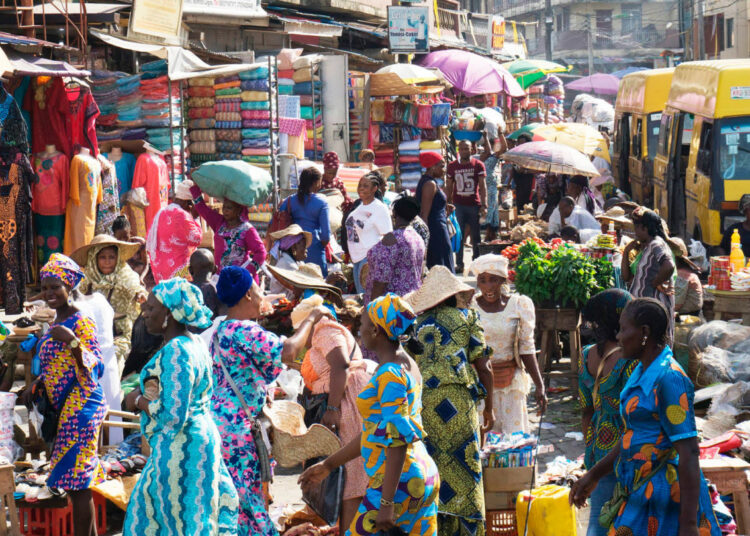Nigeria’s economic landscape is at a pivotal juncture. Faced with fluctuating oil prices, rising inflation, and currency devaluation, the country’s foreign reserves remain under constant strain. As Africa’s largest economy, Nigeria must adopt innovative strategies to safeguard its economic stability and reduce dependency on the U.S. dollar for international trade. One crucial tool that Nigeria must prioritize is negotiating currency swap agreements with major economies such as China, India, Russia, South Africa, Germany, France, Spain, and Italy.
Currency swap agreements—bilateral arrangements that allow two countries to exchange their currencies for trade and investment—offer Nigeria a viable mechanism to mitigate foreign exchange pressures, ensure balance of payments, and foster greater economic cooperation.
By diversifying Nigeria’s trade settlement framework, these agreements can unlock new growth pathways and reinforce the nation’s economic sovereignty.Nigeria’s foreign reserves are heavily reliant on petroleum exports, which account for over 90% of the country’s foreign exchange earnings.
This over-reliance exposes Nigeria to market volatility, with global oil price fluctuations dictating the health of its reserves. When oil prices fall, Nigeria’s reserves deplete, impacting the Central Bank’s ability to stabilize the naira and meet import obligations. Additionally, a significant portion of Nigeria’s imports—ranging from machinery to pharmaceuticals—are invoiced in dollars or euros, creating further strain on reserves. In 2023, the naira witnessed sharp depreciation, exacerbated by limited dollar liquidity.
The result was rising inflation, soaring costs of goods, and a diminished purchasing power for ordinary Nigerians. Therefore, a currency swap mechanism will directly address these challenges by bypassing the need for dollar transactions.
By settling trade in local currencies, Nigeria can reduce pressure on its dollar reserves while strengthening economic ties with partner nations.Nigeria has already taken initial steps toward this approach. In 2018, the Central Bank of Nigeria (CBN) signed a $2.5 billion currency swap agreement with the People’s Bank of China.
This arrangement allowed Nigeria to pay for Chinese imports in yuan rather than dollars. The result has been a modest but notable reduction in Nigeria’s dollar demand and an expansion of trade with China, its largest trading partner. However, while the China-Nigeria swap is a step in the right direction, it represents only one facet of a broader opportunity. Nigeria must replicate this model with other major trading partners, including European Union, India, Russia, South Africa, and key European economies like Germany, France, Spain, and Italy.
These nations constitute a significant 2 | P a g eportion of Nigeria’s import portfolio, and bilateral agreements with them can significantly enhance Nigeria’s economic resilience.Strategic Benefits of Currency Swap Agreements will include the preservation of Nigeria’s foreign reserves, diminish Nigeria’s reliance on the U.S. dollar for trade, conserving foreign reserves for essential uses, such as debt servicing and crisis intervention. By settling transactions in naira, rupees, rubles, euros, or rand, Nigeria retains greater control over its reserves, ensuring economic stability. Nigeria’s persistent trade deficits with countries like China and India widen balance of payments gaps.
Currency swaps will allow Nigeria to finance these deficits in local currency, reducing external debt accumulation and alleviating balance of payment pressures. Trade invoiced in local currencies often translates to more favourable terms for exporters and importers. Nigerian businesses can secure better deals, avoiding exchange rate volatility tied to dollar fluctuations.
This boosts competitiveness and stimulates domestic production.Currency swaps reinforce diplomatic and economic ties between Nigeria and its partners. By fostering interdependence, these agreements pave the way for greater foreign direct investment (FDI), joint ventures, and technology transfers, contributing to Nigeria’s long-term economic growth. Also, inflation in Nigeria is closely linked to exchange rate instability.
A diversified settlement framework through currency swaps will stabilise the naira by curbing speculative demand for dollars. This, in turn, reduces import costs and mitigates inflation.India, Nigeria’s second-largest trading partner, with significant imports of pharmaceuticals, machinery, and technology. A naira-rupee swap agreement could lower import costs and expand Nigeria’s trade footprint in Asia.
Russia, as Nigeria seeks to strengthen energy and defense cooperation, a naira-ruble swap enhances trade in critical sectors like agriculture and defense equipment. South Africa, Africa’s most industrialized nation, South Africa is a key regional partner. A naira-rand swap fosters greater intra-African trade under the African Continental Free Trade Agreement (AfCFTA). Germany, France, Spain, and Italy; these European economies are central to Nigeria’s infrastructure and manufacturing imports.
– Liman was the former Chief Trade Negotiator of Nigeria and Acting DGl, Nigerian Office for Trade Negotiations, Adefeko is director of corporate and regulatory affairs at Olam Agri and chairman of the Industrial Group, Lagos Chamber of Commerce and Industry
Local currency agreements with the eurozone could diversify Nigeria’s trade architecture and attract European investors.On the basis of these observations the Central Bank of Nigeria must prioritize bilateral negotiations with the central banks of key trading partners, leveraging existing diplomatic channels. Nigeria’s expected membership in BRICS, membership of the African Union, and possibly the G20 offers platforms for initiating these discussions.Nigeria’s fiscal and trade policies should align with the broader goal of promoting local currency settlements.
This includes incentivizing exporters, strengthening the naira through monetary policy reforms, and enhancing domestic production capacity. The private sector must equally play an active role in driving currency swap utilization. By engaging with industry leaders, the government can tailor swap agreements to sectors that yield the highest economic dividends.
Transparency in 3 | P a g eswap negotiations is critical to fostering investor confidence. Regular communication with stakeholders—both domestic and international—ensures clarity and prevents speculation.Nigeria stands at a crossroads, and the path forward demands innovative economic tools that prioritize resilience and growth. Currency swap agreements represent a pragmatic solution to Nigeria’s persistent foreign exchange challenges.
By negotiating swaps with major economies like India, China, Russia, South Africa, and key European nations, Nigeria can safeguard its reserves, ensure balance of payments, and stimulate trade competitiveness. This strategy should not be seen as merely an economic necessity—it is a geopolitical imperative that positions Nigeria as a leading player in the evolving global economic order.———————————————————————————————————————————–
w




